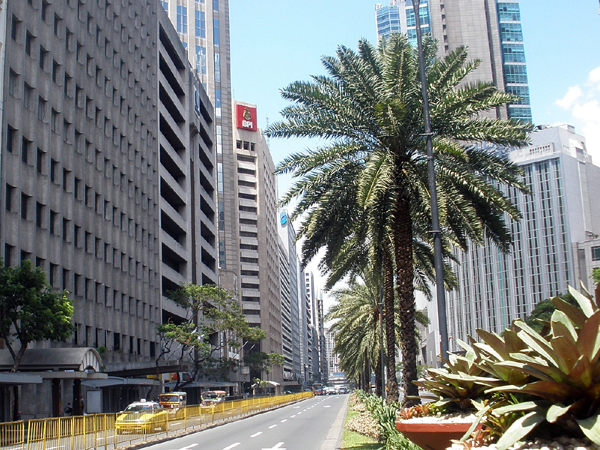The Aquino administration seems to have made good on its promise to streamline registration processes as part of its efforts to ease doing business in the country and boost its position as a more attractive investment destination in the region.
When President Aquino made this commitment in 2010, the Department of Trade and Industry (DTI) launched in October that year the electronic business name registration system (EBNRS), one of the agency’s “anti-red tape initiatives in line with the government’s policy of streamlining the bureaucratic processes and curbing corruption in the frontline agencies.”
The application for a business name through the EBNRS takes only 15 minutes and requires a one-page application form and one signature compared. This has drastically improved the process by cutting the length of time, the number of documents and signatures required to register a business name.
With the EBNRS in place, entrepreneurs can get their DTI business name registration certificate in less than 30 minutes.
One-stop shop
But the registration of business name with the DTI is only the first step for an entrepreneur to start a business. Other regulatory agencies and local government units (LGUs) require businesses to register so these can be issued permits and licenses to operate.
READ: PH climbs ranking in ease of doing business index
In January 2012, the DTI initiated the Philippine Business Registry (PBR) to link the EBNRS with the registration processes of other line agencies, such as the Bureau of Internal Revenue (BIR), Social Security System (SSS), Home Mutual Development Fund, Philippine Health Insurance Corp. (PhilHealth), Securities and Exchange Commission (SEC) and local governments to provide seamless transactions for entrepreneurs.
The PBR served as a one-stop shop for entrepreneurs who need to transact with several agencies to be able to start operating a business and get all the necessary permits in 30 minutes.
In 2012, the DTI implemented an electronic payment (e-payment) scheme for business name registration, as it moved to further ease the processes involved in doing business in the country.
The establishment of an e-payment scheme was done in partnership with BancNet, Development Bank of the Philippines, Globe Xchange Inc. and Land Bank of the Philippines.
Simplifying the process
In April, 12 government agencies unveiled reforms simplifying the process of starting a business to six steps and eight days, down from the previous setup requiring 16 steps and 34 days.
READ: 12 gov’t agencies to implement reforms
2 problem areas
These reforms will primarily address one of the two main problem areas, namely starting a business, as identified in many global competitiveness reports, such as the Ease of Doing Business Report by the World Bank-International Finance Corp.
The package of reforms, aimed at streamlining processes involved in starting a business, included the following:
— Merging several steps together to create single-window applications powered by more interconnectivity across IT systems of different agencies;
— Removing several outdated procedures; and
— Introducing enhanced one-stop-shop procedures in local government units.
These changes involved coordination and partnership across numerous government agencies.
The net effect is that the time it will take to incorporate new corporations, partnerships and nonstock corporations at the SEC will be reduced from 16 steps and 34 days to only six steps and eight days.
Initial roll-out of the reforms began at the SEC’s Manila office starting April, where most companies are incorporated. Roll-outs would continue throughout the year across all SEC offices and a full online system will be made available next year.
Starting business
Guillermo M. Luz, cochair for the private sector of the National Competitiveness Council, noted that most improvements in streamlining business processes were in starting businesses.
“For years, we struggled in the Ease of Doing Business Report published by the International Finance Corp. and World Bank. This is a measure of the ease or difficulty of going through 10 standard business-related processes with government—basically licenses and permits at the national and local level,” Luz said in an e-mailed statement.
READ: PH world’s most-improved in World Bank’s Ease of Doing Business ranking
“Just a few years ago, we ranked No. 148 in the world, a dismal record considering that only 189 economies were on the list. Since we started our Gameplan series in 2013, we have been able to get more agencies involved and committed to working together to streamline processes and make them more business-friendly,” he added.
Luz said among the most dramatic of improvements had been in starting a business (or incorporating).
While registration for single proprietorships has been vastly improved through the Philippine Business Registry, incorporating continues to be a tedious process which discouraged investors, he said.
“This process took a minimum of 16 steps and 34 days. Now, thanks to an integrated system put together by the SEC, BIR, SSS, Pag-Ibig and PhilHealth, the process at the SEC now takes one day for about 80 percent of applicants.
READ: Growth seen to continue slowing down
“By linking up to the local government units, we hope to also streamline the process and complete incorporation within six to eight days. Through full automation (it is partially automated today), we hope to take the process completely online next year and reduce the steps and time further,” Luz added.
